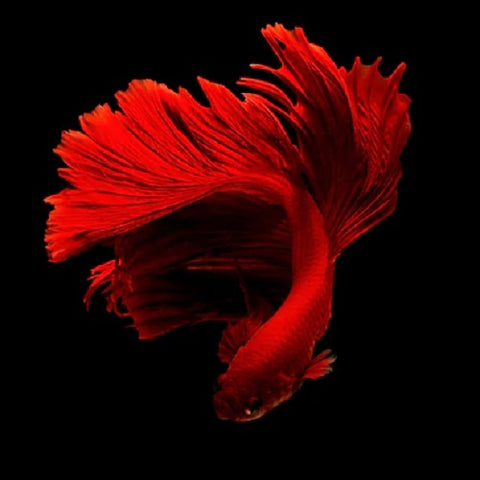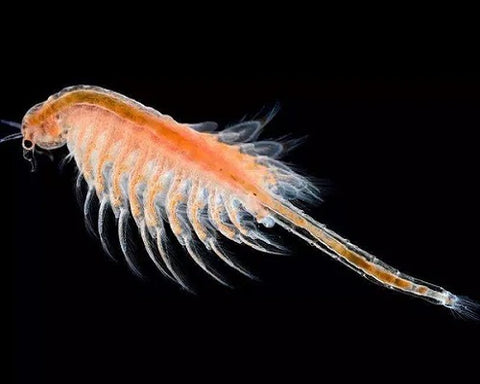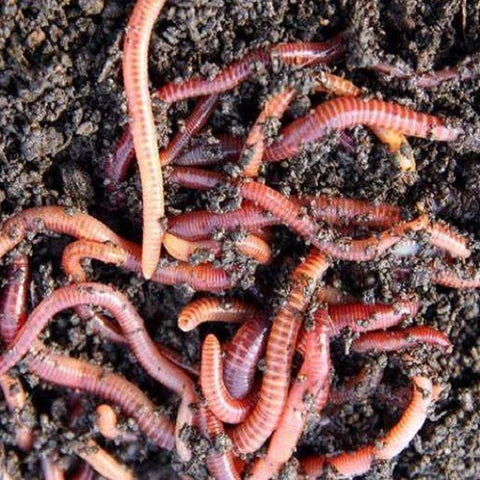When keeping a betta fish, most people have a common question--how often do I feed a betta fish? The recommended answer is twice per day, and starve it for one day per week.
Providing a diet and environment suited to your betta fish’s needs is very important. So when you decide to keep a betta fish, you must know what do betta fish eat, how often to feed them, the reason why they don’t eat, and how to prevent them from overeating.

What do betta fish eat?
- Fish flakes
- Pellets
- Freeze-dried foods
- Frozen foods
- Live foods
As one of the natural carnivores, wild betta fish like eating insects and insect larvae, which are high in protein. Some betta fish are greedy, they eat a lot of food because wild betta fish have to compete for food, or they will be starving. For the betta fish kept in your small tank, you can feed them with these foods.
Fish flakes
Fish flakes are full of fillers, which will make your fish feel full more easily while taking in fewer nutrients. And it will also pollute the water in your aquarium, which will affect the water quality.
The fish flakes are not recommended on most occasions, but if there is no choice, you can feed your betta fish with them.
Pellets
Pellets are cheap and easy to get, also very convenient, you can buy this kind of food from all fish stores. They are designed to meet betta fish’s needs for protein and nutritional ingredients. So you don’t have to worry about the ingredients.
A betta fish has a small stomach that is about the size of its eye, so remember to soak the pellets for a while because they will expand roughly twice their size in water. If you don’t soak them before feeding them to your betta fish, the pellets will expand in your betta fish’s body, causing constipation and even death.
Freeze-dried foods
Freeze-dried foods are easy to get and have a long shelf life. You don’t have to worry that the foods will be expired before your betta eat them up. Compared with live foods, freeze-dried foods contain no parasites that will bring disease to your fish.
The drawback is there will be some stabilizing additives in the freeze-fried food to keep them dried, which may influence the health of your betta fish. Also, you need to soak them before feeding to avoid bloating.
Frozen foods

Including insects larvae, brine shrimp, mysis shrimp, bloodworms, and algae. These foods should be stored in your freezer, then thaw them before feeding to your betta. They may be more expensive than other foods, but they are high in the protein and nutrients your betta fish need, and they can be stored for a long time.
What’s more, although the larvae, shrimp, and worms are dead at the time of feeding, they do provide an environment that is similar to the wild.
The only drawback is that it may cost a little time to thaw.
Live foods

As we mentioned before, wild betta fish like eating insects and insects larvae, so you can feed them with some live foods, such as insects larvae, bloodworms, brine shrimp, and so on. Don’t forget to rinse them thoroughly before feeding them to your fish because there will be many bacteria on their bodies.
The drawback you might have to worry about is that live foods usually contain parasites that will cause fish diseases.
How often do you feed a betta fish?
How often to feed your betta fish needs to consider many factors. The most important factor is the water temperature.
If the temperature is suitable, you can feed your betta fish twice a day. However, if the water is warmer, your betta fish may have to be fed three times one day because they digest faster.
So when you decide how often to feed your betta fish, check the water temperature with a thermostat, make sure your heater work normally.
Betta fish have a small digestive system, which means the toxins are easy to accumulate in their body. In that case, you must give your betta fish a break to clear the toxins. It is helpful for your betta fish’s health to miss a feed one day a week, but do not miss feeding any more than this.
Why isn’t your betta fish eating?
- Stress
- Tank size
- Types of food
- Physical condition
Betta fish can survive for 2 weeks without eating, so if they skip one or two meals, there is no need to worry. But if they don’t eat for a long time, you may have to figure out the reason, because they will be unhealthy without eating. You can try to find out the reason from these aspects.
Stress
Stress may come from the water temperature change, water change, tank clean, or environment change. It takes time for your betta fish to adapt to the change, so they may have no appetite. So do not make changes too often and try to help them adjust themselves.
Tank size
Betta fish are often kept in a small tank where they can not move freely. They will feel unhappy and lose their appetite. So make sure there is enough space for your betta fish to swim freely.
Types of food
Some betta fish have their preference. They may like freeze-dried food, frozen food, pellets, or live foods. So if your betta fish do not eat, try to change another type of food for them, figure out the food they like best.
Physical condition
If there is no problem with the outside environment or the food type or anything else, your betta fish may be ill. Do not try to cure them by yourself, ask a veterinarian or other expert for help.
How to prevent overeating
Wild betta fish have to fight for food, so when they are kept in a fish tank with no competitors, they will eat as much as they can, which will cause overeating. Sometimes overeating can be very dangerous for betta fish. It will lead to digestive stress, a severe gastrointestinal condition, bloating, swim bladder problems. and obesity.
To prevent your fish from overeating, the first thing you should know is how to tell whether they are full or not. Generally, betta’s feeding time lasts for about 2 minutes since their digestive tracts are very small. So after feeding for 2 minutes, you can see if there is a slight bulge in their belly, which is a sign that they are full.
Once you have known the amount of food that will make your betta fish full, feed them with the roughly same amount of food each time.
Then you need to clean the excess food in the fish tank. If you don’t clean out the excess food, they will continue to eat until the food has been eaten up.
Cleaning out the excess food can also avoid water pollution, which will harm betta fish’s health. You can use a water changer or a filter to remove the uneaten food in your aquarium.
If your betta fish have overeaten, you can try to make them move around to digest the food they eat and let them feel more comfortable.
Related Topic:
How Long Do Betta Fish Live?29 Types of Bettas
Why Is My Betta Fish Not Eating?



Comments (0)
Back to Fish Care